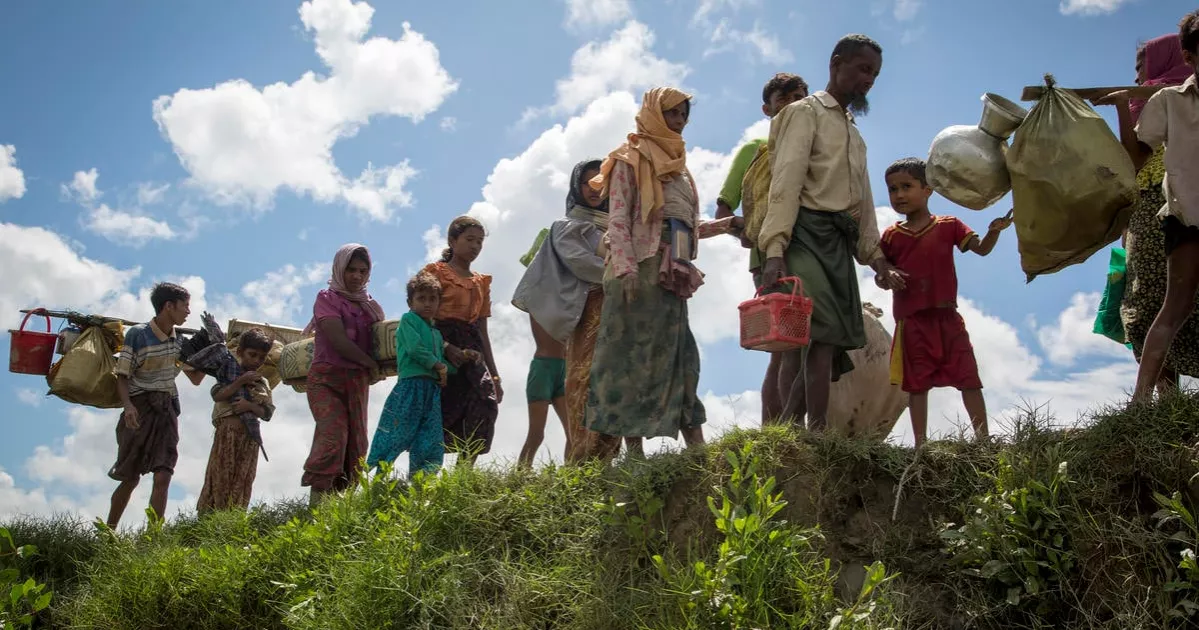A crucial three-day dialogue on the Rohingya crisis wrapped up in Cox’s Bazar with a strong plea for continuous funding to avert further humanitarian disaster, emphasising that such support is essential until the Rohingya refugees can be safely, voluntarily, and dignifiedly repatriated to Myanmar.
Diplomats, representatives of international organizations, political figures, and experts toured various locations within the Rohingya camps, observing the activities of the World Food Programme (WFP), UNHCR, and Friendship Hospital to understand the on-the-ground efforts in assisting refugees.
Abul Kalam Azad Majumder, Deputy Press Secretary to the chief adviser, addressed the growing concern of insufficient funds in sustaining humanitarian aid. “While the number of refugees continues to rise, funding remains insufficient,” he said. “This gap in funding risks creating a larger humanitarian crisis, affecting not just the Rohingyas but everyone involved in the relief efforts.”
With the Joint Response Plan’s funding reaching just 60 per cent, the urgency for stabilising the financial support system was further emphasized.
Over eight years ago, violence in Myanmar’s Rakhine state forced over 700,000 Rohingyas to flee, with the refugee population now surpassing 1.3 million in Bangladesh. Despite their struggles, Bangladesh has been lauded for its response to the crisis.
Raouf Mazou, Assistant High Commissioner for Operations at UNHCR, highlighted Bangladesh’s remarkable generosity, acknowledging the welcoming nature of local communities despite the country’s own challenges.
However, Mazou pointed out the growing difficulty in securing sufficient resources, citing that the number of displaced people worldwide is expected to reach 120 million by the end of 2024, putting additional pressure on the international community’s response efforts.
“While food assistance can be assured until December, the availability of resources like LPG beyond September is uncertain. Essential services such as education and healthcare have already been significantly reduced,” he warned.
Additionally, the situation remains dire for both the internally displaced persons within Myanmar and the increasing influx of Rohingya refugees into Bangladesh. The UNHCR calls for innovative solutions that allow refugees to contribute to the reconstruction of Myanmar without hindering their return.
Political voices for action
During a political session on the Rohingya issue, BNP Chairperson’s Adviser Ismail Jabiullah criticized the government for failing to effectively address the crisis in 2017.
“The situation has become more complex due to the government’s inaction,” Jabiullah stated, underscoring that a lasting resolution requires Myanmar’s direct involvement. He assured that the BNP, if in power, would work with international partners to resolve the crisis.
Reflecting on his early experience as camp-in-charge at Kutupalong in 1978, Jabiullah reiterated, “The crisis originated in Myanmar and must be resolved there.”
Bangladesh Jamaat-e-Islami Secretary General Mia Golam Porwar, AB Party leader Asaduzzaman Bhuiyan Fuad, Gono Odhikar Parishad’s General Secretary Md Rashed Khan, and National Citizens Party leader Akhter Hossen also voiced their concerns during the session.
Rashed Khan called for stronger international action, saying, “We urge global powers, including China, India, the USA, and the UN, to stand against Myanmar’s military regime. Sanctions will force Myanmar to take back the Rohingyas.” He stressed, “History will judge us not by our speeches but by our actions. Let us unite and fight for justice for the Rohingya.”
Jamaat-e-Islami’s Porwar reaffirmed his party’s support for the Rohingyas, emphasizing the need for sustained humanitarian aid and a permanent resolution.
Akhter Hossen extended solidarity to the Rohingya, saying, “We demand justice for the Rohingyas, ensuring they receive the basic rights, including food and education, until their safe return to Myanmar is realised.”


